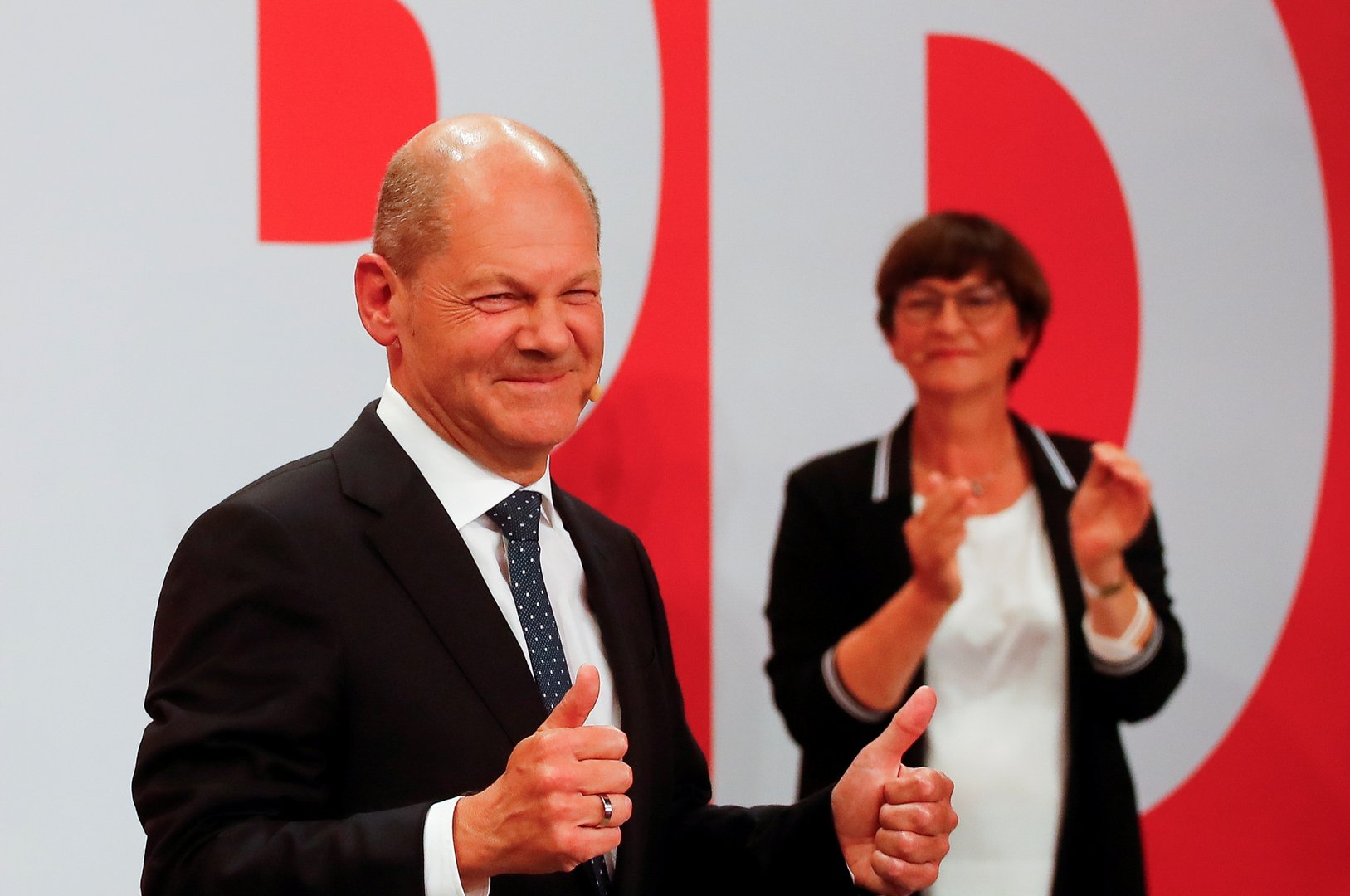Leaders of Germany’s centre-left Social Democrats (SPD) and two smaller parties will recommend moving into formal coalition talks and have agreed a road map for negotiations, the SPD’s candidate for chancellor, Olaf Scholz, said on Friday.
The Social Democrats, who came first in last month’s election, the Greens and the business-friendly Free Democrats (FDP) said exploratory talks on whether they had enough in common to form a government together had been constructive.
“A new start is possible with the three parties coming together,” Scholz told a news conference.
“If parties that are so different could agree on joint challenges and solutions, then that would be an opportunity to unite our country,” FDP leader Christian Lindner said of the “traffic light” coalition – named after the colours of the three parties.
It offered “a chance that a possible coalition could be greater than the sum of its parts,” Lindner added.
It would be the first time such a coalition had been in government at the federal level in Germany and would end 16 years in office for the conservatives under Chancellor Angela Merkel.
Greens Co-Chief Annalena Baerbock said it should be a coalition of “reform and progress to make this the decade of renewal”.
“We are now convinced there has not been an opportunity like this to modernize society, the economy and the government for a very long time,” Lindner said.
All three parties are expected to announce by Monday whether or not they will go forward with the talks, Scholz said.
According to the road map to coalition talks seen by Reuters, the parties agreed on major points including an exit from coal-fired power stations by 2030.
They also agreed on using 2% of land for onshore wind power farms, equipping all suitable rooftops with solar panels, and cutting time for planning and permits by at least half.
They agreed to increase the minimum wage to 12 euros ($14) an hour in the first year of government and not to raise the retirement age or cut pensions.







Click here to change your cookie preferences